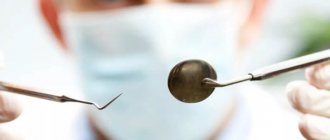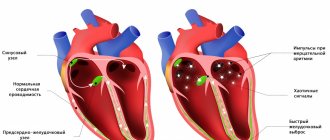There is no need to be afraid of anesthesia!
You shouldn’t be afraid of anesthesia during plastic surgery, if only because it’s a great opportunity to sleep for a few hours and wake up in a new beautiful body!
If you fall asleep and wake up under the supervision of an experienced anesthesiologist, there is no reason to worry. Experts shared with us their professional opinion on why there is no need to be afraid of anesthesia, especially when it comes to plastic surgery. At the Butko Plastic clinic you can take all the necessary tests, get expert advice, undergo diagnostics and a thorough examination of the body so that anesthesia is safe.
A comprehensive and competent approach at Butko Plastic is the key to your health and impeccable surgical results.
The surgeon needs to be in good physical shape
In 1997, I pricked my finger while operating on a patient with hepatitis B and became infected with it. He suffered two waves of the disease in severe form, but, fortunately, he fully recovered, without even becoming a carrier of the “Australian antigen.”
After being discharged from the hospital, where I remained for about two months, I, due to my unreasonableness, refused sanatorium treatment and went to work. At the same time, I continued to experience severe weakness and fatigue. But I really wanted to get back into action as quickly as possible.
I started commuting to work and one day I went into the intensive care unit, where the chest was urgently re-opened right on the intensive care bed and our young surgeons were trying to stop the bleeding from the right atrium. There was no way they could stitch him up.
I approached, quickly put on a sterile gown and gloves and asked for a needle holder. It seemed to me that I would do this in an instant. This was not the case: due to the severe tremor, I could not even try to make an injection or puncture into the heart. My hands weren’t just trembling, they were shaking like a Parkinson’s person.
I apologized and stepped aside. Only after another month I was able to gradually return to surgical activities, starting with assisting.
Anesthesia: features and nuances
General anesthesia allows the surgeon to perform his work efficiently, and the patient not to experience pain, fear and discomfort.
General anesthesia is characterized by:
- complete loss of consciousness when the patient is put into medicated sleep
- lack of response to surgery and external stimuli
- loss of sensation
- muscle relaxation
These states are achieved through the introduction of anesthetic substances into the body. The choice of specific medications for medicated sleep is the task of the anesthesiologist.
Preparation for anesthesia includes the following steps:
- tests (general and clinical blood tests, urine tests)
- undergoing examinations by specialized doctors (therapist, cardiologist, dentist, gynecologist, etc.)
- undergoing diagnostics of organs and systems (cardiogram, ultrasound of the heart, etc.)
- history taking
- identifying allergic reactions to medications
A few days before the proposed operation, the anesthesiologist studies the research results, talks with the patient, and then selects the type of anesthetic drug and dosage.
How to get rid of the fear of surgery
The patient has the right to choose to accept or refuse the operation. When a surgical intervention on the body is established by a council of doctors to save a life or improve health, a person must refuse the operation in writing. This way, doctors will not be held responsible in case of an accident or unforeseen circumstances.
Why is there fear before surgery? In most cases, you just need to deal with the causes of fear . A person may realize that a medical institution has a high level of service, a large number of satisfied clients, and a high level of training of medical specialists. Despite the minimal risks, the patient continues to be haunted by internal anxiety.
To get rid of such a phobia, it is enough to tell yourself about the need to improve your health. Sometimes it is impossible to do without surgical intervention. You need to try to cope with your emotions, write down rational arguments on paper, and re-read them several times.
Here's what you can do to minimize fear of surgery:
- read prayers
- get distracted by other things
- weigh the risks
- think positively
- don't escalate the situation
- take sedatives
Prayer is one of the easiest ways to get rid of a phobia for those who believe in a higher power. For skeptics, this method will not bring much benefit. It is absolutely not necessary to go to church and light candles. It’s enough just to pray, ask for help, health and patience for yourself.
The most unpleasant time is the evening or night before surgery.
How to overcome fear? It is important not to be alone with your own thoughts. It is best to ask your loved ones to come visit, talk about pleasant topics, or go to the cinema or theater. There is no need to withdraw into yourself or dwell on negative thoughts.
A small percentage of the operation is due to force majeure circumstances. It is worth treating this as the structure of the world and nature as a whole. You won't be able to control everything. This fear can only be combated by collecting as much information as possible about the clinic and medical specialists. Please note that only one patient per 250 thousand people dies as a result of a medical error . That is, the chances of dying for this reason are reduced to almost zero. The patient has a much higher chance of passing into another world due to the lack of therapeutic measures for his disease.
Positive thinking can help overcome fear of surgery. You need to try to think only about good things. It is important to force yourself to replay exclusively pleasant memories in your head before going to bed, and not to focus on the upcoming surgical intervention. You can try to visualize how your life will change in a positive direction after the operation.
For example, if a person is about to have his appendicitis removed, then one can imagine going to a restaurant or visiting entertainment venues. During gynecological surgery, it is advisable to think about future childbirth and pregnancy. Under no circumstances should you escalate the situation.
It is advisable not to seek information about force majeure during the operation, how death occurs and for what reasons. You need to tune in to a positive wave.
If none of the above points help, then you can simply drink a sedative. It will stimulate deep sleep and improve the overall physical and mental health of the patient.
Suitable means for taking inside the body are:
- chamomile
- St. John's wort
- mint
- fireweed
- Linden
Please note that before taking such herbs, you must consult your doctor. It happens that the patient has an allergic reaction, or the simultaneous use of several medications is contraindicated.
How not to be afraid of what will happen during and after the operation? The answer is obvious - just relax, forget about the bad, trust the doctors and yourself.
If a person is in the hospital before an upcoming surgical intervention, then you can walk along the floors of the medical facility and talk with other patients. Information about how other people struggled with their fears may be useful; you can ask how patients feel after surgery, whether the experience was worth it. This way time will pass much faster, and there will be no room for negative thoughts.
Dispelling myths about anesthesia. There is no need to be afraid of a competent approach
During anesthesia, the patient simply sleeps - without hallucinations or visions
During medicated sleep, the patient's consciousness behaves in the same way as during normal sleep. The brain rests, dreams may occur, sometimes even more vivid than usual. But there are no hallucinations, sleepwalking and “light at the end of the tunnel” - all this is nothing more than the wild fantasy of film directors.
The patient does not wake up during the action of the anesthetic
There will be no accidental “waking up”! To do this, the anesthesiologist conducts a thorough examination of the body and selects medications in the right dosage. During plastic surgery, heart function, blood pressure, pulse, body temperature, brain activity and other factors are constantly monitored. But as soon as the condition begins to change, there are always ways to adjust the anesthesia.
You can find ways out of a difficult situation
Experienced anesthesiologists say: there are practically no absolute contraindications for administering anesthesia (except for complex diseases of the cardiovascular system). The doctor’s professionalism lies in finding a “medicinal solution” to any situation. If one anesthesiologist refuses to provide anesthesia, look for another, more experienced specialist.
Anesthetics last only a few hours - there will be no consequences
Slight dizziness, weakness, and vomiting may accompany recovery from anesthesia, but these unpleasant moments persist only for a couple of hours. To say that anesthesia will affect the brain and this will have its “echoes” throughout the future life is absolutely not an expert!
Anesthesia does not affect life expectancy, but it must be treated with caution
Not a single anesthesia will shorten a person’s life, provided that the person does not aggravate the situation. After any anesthesia, the body must be allowed to recover, because surgery with anesthesia is a shake-up for the body. But, if the next operation happens in the very near future after one already performed under general anesthesia, the body may malfunction.
The more thorough the preparation, the less the risks
Ideally, you should go under the knife of a plastic surgeon in a state of good health: without viral diseases, dental problems, neuroses, etc. Chronic diseases should be treated in order to enter a state of stable remission.
Will there be hallucinations?
Previously, drugs were used that had a hypnotic and analgesic effect. But they did not cause sedation, that is, a calming effect. Therefore, patients experienced disturbing hallucinations, due to which awakening was difficult and prolonged.
For example, Ketamine has a similar effect.
At the moment, only drugs are used that simultaneously eliminate pain, suppress agitation, and have a hypnotic effect. Only in this case will the operation go smoothly and not cause complications. You can use not one, but several substances at once. The anesthesiologist selects the optimal dosage of each drug, taking into account the risk of drug interactions.
Those drugs are used that, when combined with each other, do not cause suppression of the effect. This is due to the fact that all funds must be administered at the same time. Thanks to modern drugs, the anesthesiologist achieves this effect. The patient will not experience hallucinations. He will sleep but not dream. The maximum absence of agitation and calmness of the patient is achieved.
Recommendations for preparing for anesthesia:
- Stop smoking at least a few days before surgery - this way you will significantly reduce the risk of respiratory complications during surgery
- do not drink alcohol for several weeks before surgery
- exclude the use of new or “controversial” products, so as not to disrupt the gastrointestinal tract
- inform the anesthesiologist about the slightest deviations in health: dizziness, pain, weakness, anxiety, etc.
How does a patient recover from anesthesia?
- After the anesthesia ends, the patient regains consciousness - reaction, sensitivity, and muscle function are restored.
- In the first hours after surgery, the person is under the strict supervision of an anesthesiologist and other specialists.
- At first, the patient is given an anesthetic to smoothly exit the state of drug-induced sleep and dull the pain.
- To restore blood volume, infusion therapy with electrolyte solutions is performed.
- As a rule, already on the second day after surgery, the patient is transferred to a specialized department, where doctors continue to monitor him.
- Side effects of recovery from anesthesia may include dizziness, headache, and mild nausea. But in general, the condition is tolerable, especially against the backdrop of positive emotions from the transformation.
Removing hair from the body.
Hair is a source of infection. They are one of the sources of postoperative infectious complications. Therefore, removing body hair before surgery is mandatory. Hair, if present, is removed from the neck, chest, abdomen, groin area, and upper third of the thigh. There are two options - shaving or machine cutting.
According to the latest WHO recommendations for the prevention of surgical infections, machine cutting is preferable, since shaving the surgical field causes micro cuts in the skin, which can lead to infection. It is also recommended to shave your face. If intubation is performed during surgery (insertion of a breathing tube into the trachea for mechanical breathing), it will be convenient for the anesthesiologist to fix the breathing tube to a shaved face.









